

Similarly, Al Jazeera English said that on November 11, hundreds of thousands of people participated in a solidarity march with Palestine in central London. They chanted slogans like "Stop bombing Gaza" and "Ceasefire now." Social media—especially Instagram and viral hashtags—played a crucial role in bringing people together and making the message known.
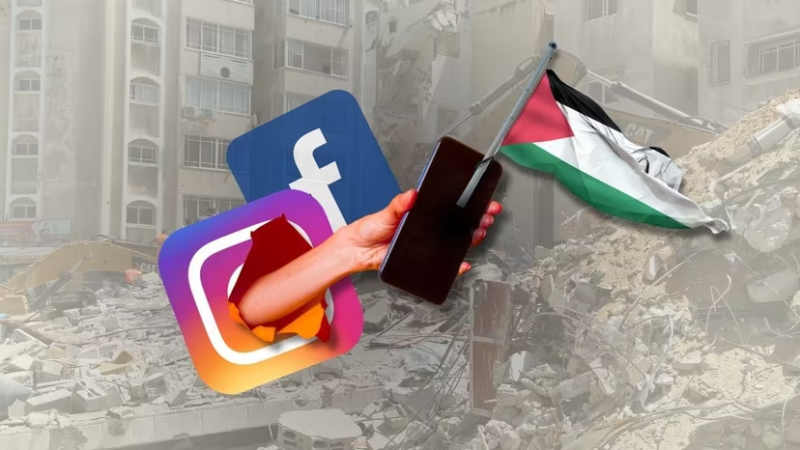
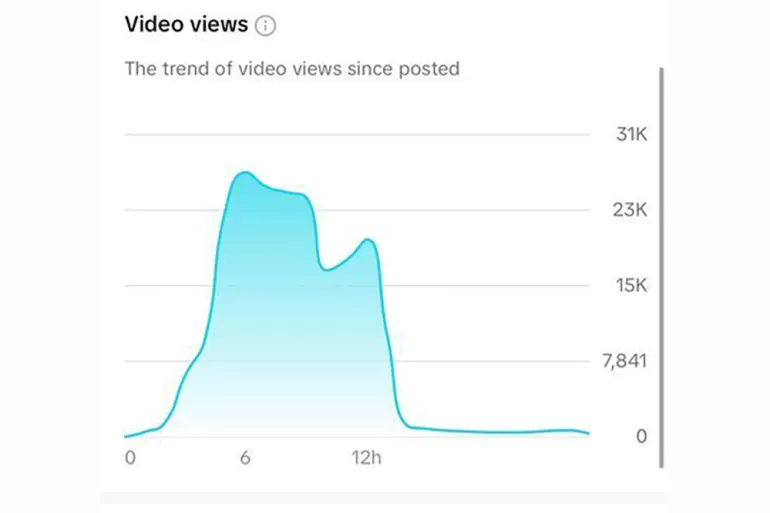
Belgian filmmaker Thomas Maddens noticed a decrease in engagement with his video that is Palestine [Courtesy of Thomas Maddens]
The American website The Intercept ran a piece by writer Sam Biddle reporting on shadow banning and the narrative war Meta—specifically through Instagram—is waging against Palestinian content.
According to the article, Biddle says how Meta has been shadow banning or deleting posts concerning Palestine, quietly taking them down or concealing them from the public, and helping spread one version of the story—the one that supports the occupation. He states that since Israel began conducting airstrikes on Gaza after the Hamas attack of October 7, users of Instagram and Facebook have experienced a large number of their posts being deleted. In some cases, Palestinian accounts had the word "terrorist" automatically translated into their biographies. Even hashtags were censored.
Instagram also censored comments that included the Palestinian flag emoji, said Palestinian digital rights group 7amleh, which officially works together with Meta on issues of freedom of expression in the Middle East. The platform censored comments from many users and demoted them to the end of the posts where others would have to click "see more" to view them, the group said.
Eric Seip, the US national coordinator of 7amleh, reiterated the same: it was happening a lot when the comment had the Palestinian flag. Users also reported that Instagram marked the flag emoji comments as "potentially offensive," according to TechCrunch.
Meta had responded that the instances were due to "technical errors." Meta spokesperson Andy Stone told The Intercept that the company hides some comments with the flag emoji when they appear in what they refer to as "abusive contexts" which break company policy.
Stone cited his company's policy regarding "Dangerous Persons and Groups" which include Hamas, and said that the company has no tolerance for any content that wishes congratulations or jokes at the death of an individual. He also said that Meta doesn't handle the Palestinian flag emoji differently in terms of policy.
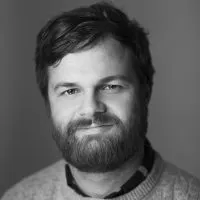
Sam Biddle
Current Position: Senior Technology Reporter at The Intercept, covering topics like surveillance, privacy, cybersecurity, and key players in the tech industry.
Previous Experience:
Senior Writer at Gawker (2014–2016)
Editor for Valleywag and Gawker blogs, specializing in Silicon Valley news
Senior Reporter at Gizmodo, contributing investigative technology articles
Style and Notable Work:
In June 2016, he joined The Intercept. His mission there is to hold technology companies and surveillance agencies accountable through thorough and bold investigative reports.

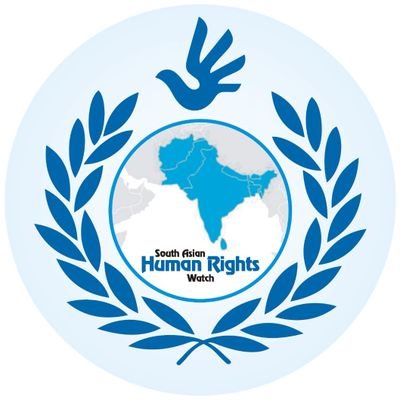

CFMM
HRW
GV
According to 7amleh – The Arab Center for the Advancement of Social Media, the reach of posts drops by 87% when they include any content related to Gaza, while the reach decreases by only 12% when the posts are about Israel.
Here is an infographic that explains these numbers.
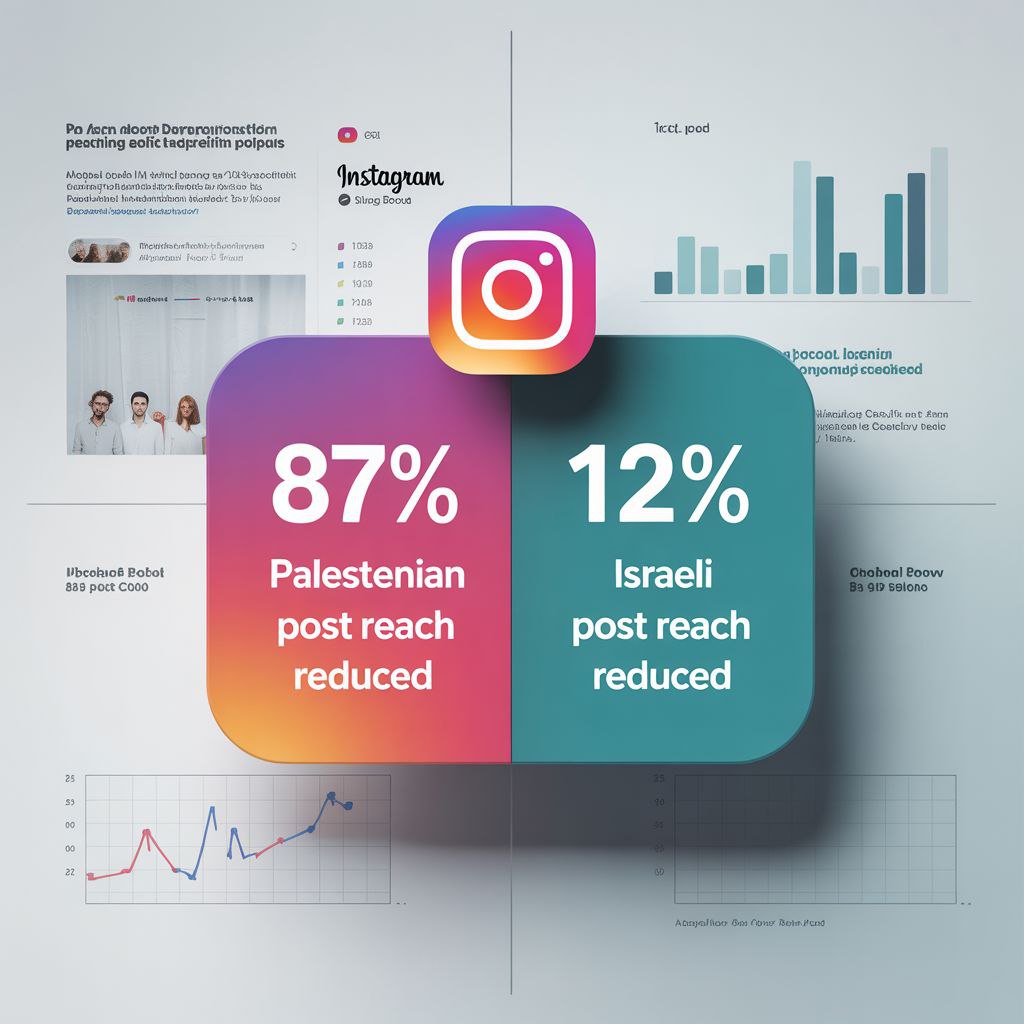
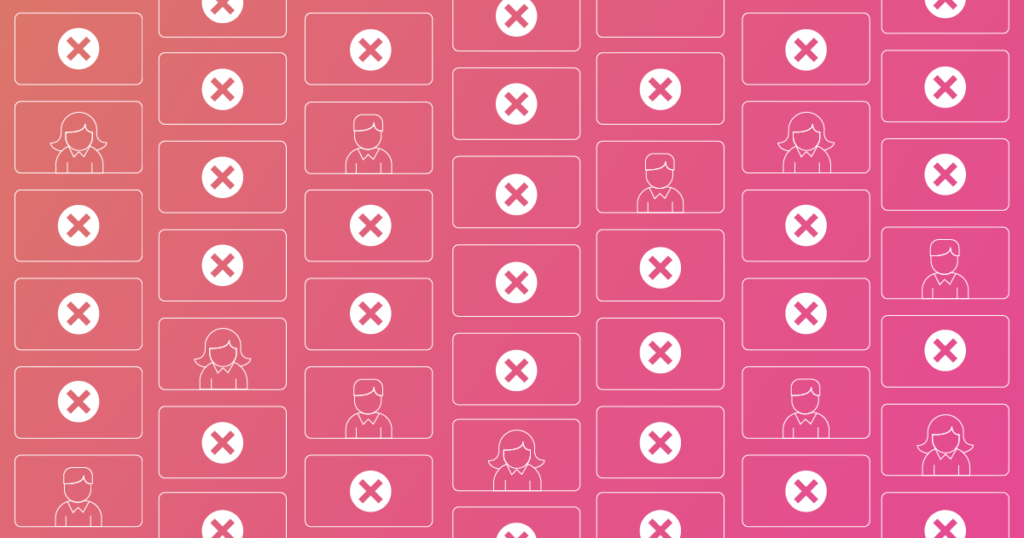
A diagram of how algorithms read profile picture patterns of accounts.

Despite the restrictions, there is still hope. Every problem has a solution, even if it requires a lot of effort or might affect careers and job opportunities later on. When the motivation comes from humanity and the shared belief that sacrifice is necessary to achieve freedom, we see examples of people who refuse to give in to digital blockade and censorship.
Continuing to publish posts, videos, and everything needed to raise the voices of those buried alive in Palestine became a firm decision.
Ghada Saad, an activist and journalist who has tirelessly been publishing about Palestine since the start of the Al-Aqsa Flood operation, shared her experience with us—from her motivations to the principles and values that guide her.
How did the restrictions imposed by Instagram on Palestinian content become a challenge but also a motivation for users and activists to keep posting?
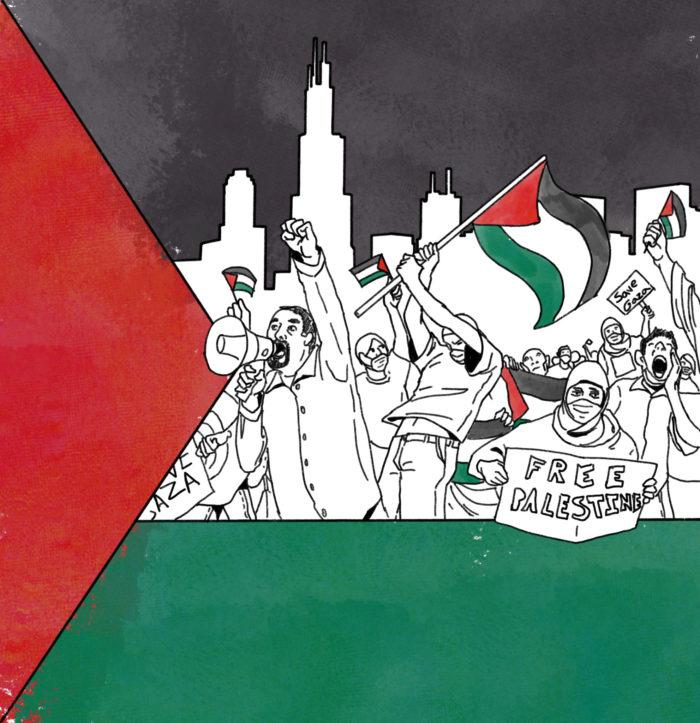
In a report by Al Jazeera English, a spokesperson for the European Union said: “Platforms must be very transparent and clear about the content allowed under their terms, and consistently and accurately enforce their policies.”
He added, “This is especially important when it comes to violent and terrorist content.”Importantly, the law also requires transparency about shadow banning and other content management practices. The spokesperson said,
“When an account is restricted, the user must be informed,” and added that users have the right to appeal such decisions.
However, according to Al Jazeera English, some experts doubt how effective this law will be in the current situation.
Given the suspicious developments and the rapid progress we are witnessing in technology, artificial intelligence, and cybersecurity, an interview was conducted with expert Mr. Youssef Munther, who discussed our future from a precise scientific perspective.